This post may contain affiliate links. Please read our disclosure policy.
There’s a simple joy in the snap of leafy greens or the crunch of fresh-from-the-market raw carrots. Keeping those perishables fresh once you get them home, on the other hand, can be a real challenge.
You can extend the life of most vegetables with a little time and care, allowing you to get as much use out of them as possible, wasting less food, and reducing your trips to the grocery store. Here’s everything you need to know about How to Clean & Store Veggies to Stay Fresh.
Keep Your Veggies fresh Longer
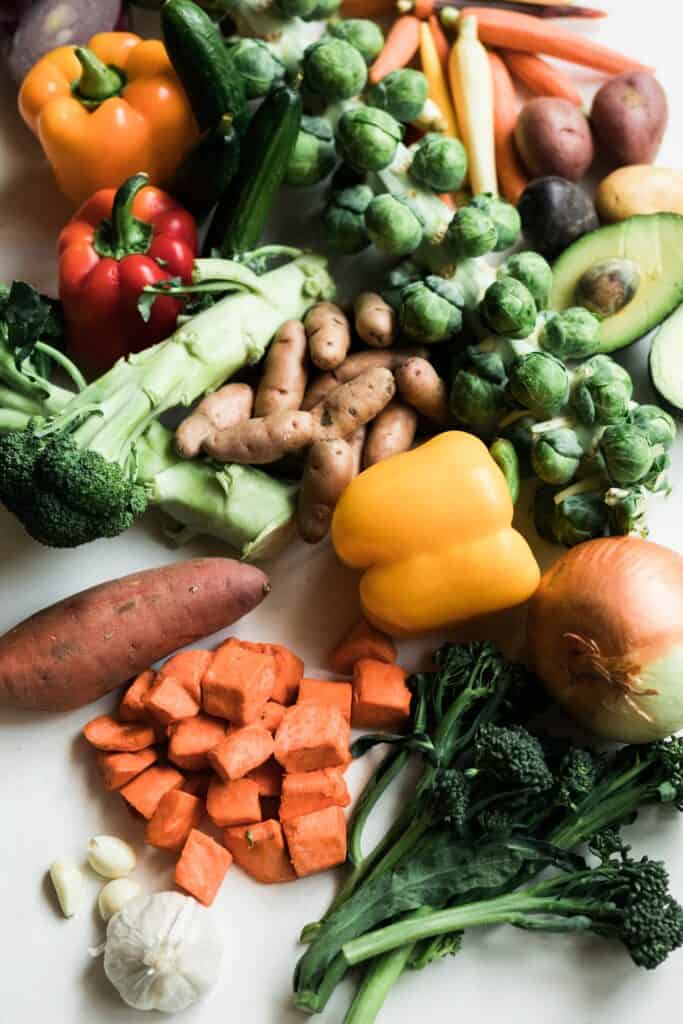
Techniques in Storing Vegetables
Since no two vegetables are alike, there is no single best way to store them all. Fresh greens, such as lettuce, spinach, and arugula cannot be handled in the same way that root vegetables, such as potatoes, beets, or radishes, can.
Furthermore, certain practices, such as peeling or washing, can either lengthen or shorten their life, depending on a variety of factors. Storing certain vegetables together can also shorten their shelf life.
Below are some beneficial tips on how to store veggies.
First, Start Fresh
The first step to getting the longest storage life in your kitchen is to choose the freshest fruits and vegetables. Choose leafy greens with vibrant colors and no limp or yellowing leaves. When selecting root vegetables, cabbages, squash, and onions, look for ones that are “heavy for their size” and free of blemishes or soft spots.
Cleaning Veggies
Most produce travels long distances before reaching you. Along the way, fruits and vegetables may be exposed to harmful bacteria or other contaminants. This is true for both organic and pesticide-free food and conventional produce. Even food that appears and tastes good could be contaminated.
Always wash produce before eating it to avoid harmful contaminants. It is not necessary to use soap or commercial produce washes. You can just use water. Firm fruits and vegetables can be cleaned with a stiff, clean brush. However, do not use the brush for any other cleaning tasks.
While it’s important to wash produce before eating it, it’s best to keep it unwashed in the refrigerator. Vegetables can spoil quickly if they are exposed to too much moisture. If you want to store your veggies, make sure to thoroughly dry them before storing them.
How to Clean Salad Greens
Begin by filling the largest bowl with cold water. Separate the leaves by hand, removing the bad ones as you go.
Put the greens in the bowl of cold water and gently swish them around to get rid of any dirt, debris, or critters that may have made the trip home with you. Fill the bowl halfway with greens, leaving enough space for water to get between the leaves. Also, never begin with greens in an empty bowl that is then filled with water, as the stream from the faucet can bruise and damage the leaves.
After you’ve given the greens a good soak, gently lift them out of the water instead of holding them in the bowl with one hand and pouring out the water with the other. You want to leave the dirt at the bottom of the bowl rather than pouring it all over the freshly cleaned greens.
Feel the greens for any residual grit as you lift them out of the bowl. Some vegetables grow deeper in the earth than others, and some farmers wash their produce more thoroughly than others. If the leaves remain sandy, drain the water from the bowl, refill it, and repeat the washing process.
Keep Your Greens Fresh and Crisp
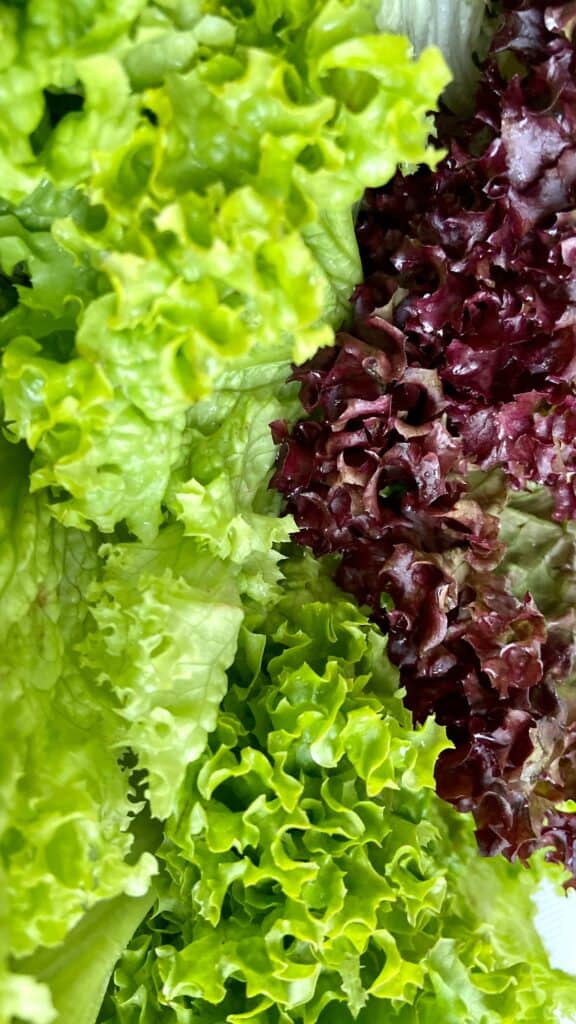
Storage Hacks for Salad Greens
Your tender fresh greens, such as arugula, baby spinach, spring mix, and so on, are the most delicate category of vegetable, so it’s best to eat them as soon as you get them rather than storing them.
Salad leaves, like many other green vegetables, respire a lot. They breathe in oxygen and breathe out carbon dioxide. Thus, they should be stored in the refrigerator since low temperatures slow respiration and help keep bacteria and fungi at bay.
Vegetables like this require a humid environment to remain crisp, but if they get too wet, microbes attack and you end up with a rotten leaves.
Keep Your Veggies Fresh!
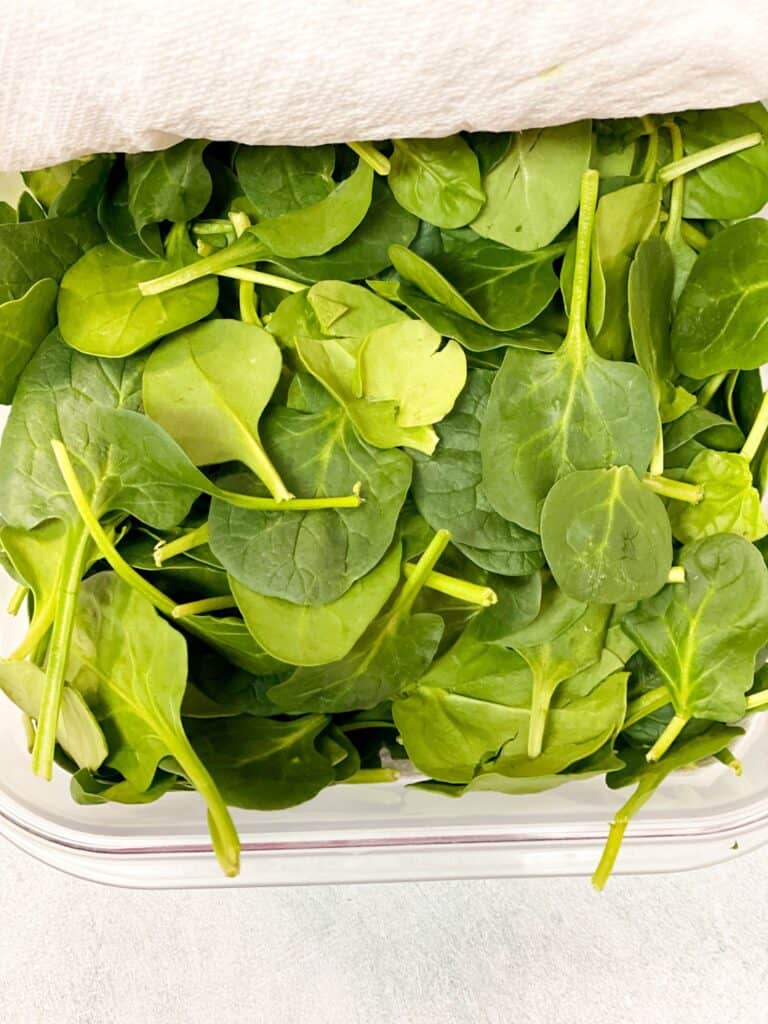
How to Store Veggies?
Cucumbers and Carrots
Cucumbers can be refrigerated or stored on the counter. They prefer warmer temperatures and will quickly become slimy and rotten if left out in the cold, so eat them as soon as possible.
If you buy your cucumbers at the store, you probably don’t need to wash them before storing them. However, if you get them from a farmer’s market or garden, thoroughly wash and dry them to remove any lingering dirt that may cling to them and hasten their demise.
If you buy a cucumber tightly wrapped in plastic, it will last longer if you don’t take it out, because the plastic is like a second skin that prevents moisture loss without causing condensation.
Carrots, especially those that have been polished clean, lose a lot of moisture and can easily shrivel, so keep them in a container in the fridge as well, and cut off any green bits.
Fresh Carrots
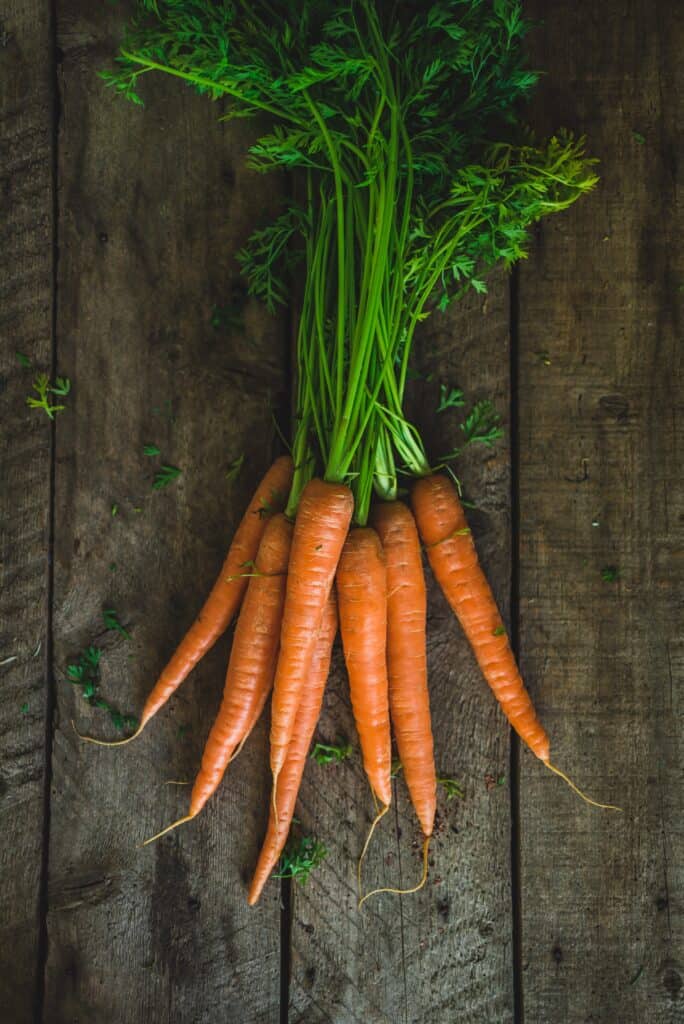
Bell Peppers & Fresh Chiles
You can store bell peppers, whether green, red, orange, or yellow, in the fridge for up to two weeks with little preparation. Simply place them in a plastic bag and place it in your crisper drawer.
The same is true for hotter chile peppers, such as habaneros and jalapenos. Peppers can be easily frozen if you want to keep them for a longer period of time. Wash them, slice them to your desired size, remove the seeds and membranes, and freeze them flat on a baking sheet.
Once they’re completely frozen, place them in a freezer bag and store them in the freezer for up to six months. Chiles can also be frozen whole or sliced.
Colorful Bell Peppers
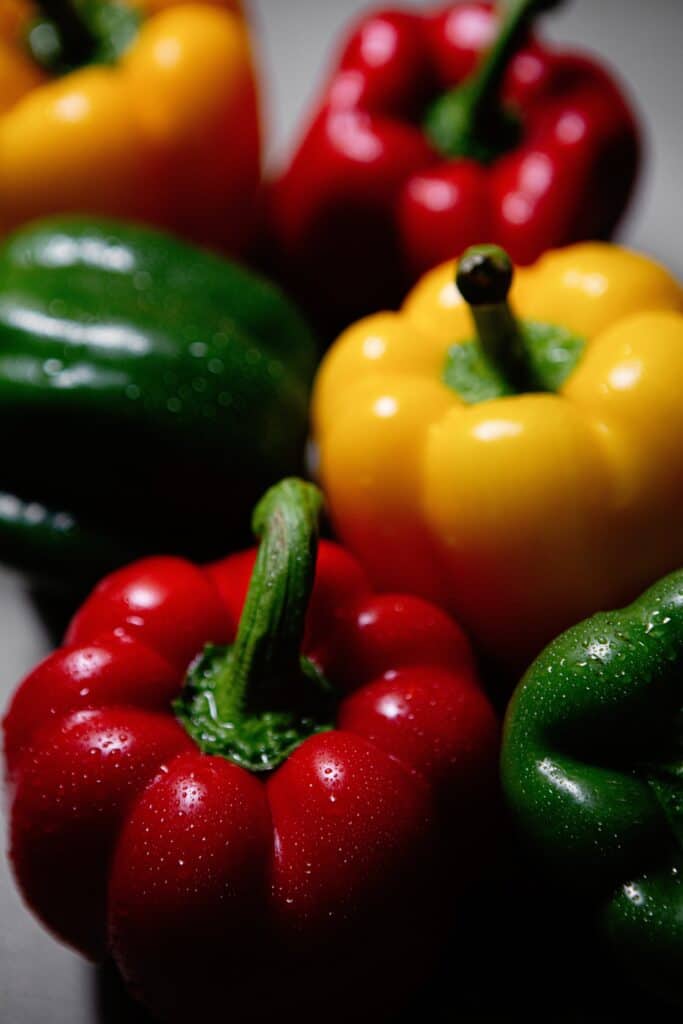
Root Vegetables
Root vegetables are the way to go if you want produce that will last you a long time. Carrots, parsnips, turnips, beets, radishes, sweet potatoes, yams, and regular potatoes are among them.
What’s great about these varieties is that you don’t always have to keep them in the fridge. You can keep potatoes and sweet potatoes in a paper bag for up to three months in a cool, dry spot in your house where the temperature is consistently between 40 and 50 degrees.
However, avoid damp, cool places because they mimic potato growing conditions and will encourage sprouting. Large potatoes have a longer shelf life than baby potatoes.
Beets can also be stored in the fridge wrapped in a damp, clean towel. They keep in the fridge for 10 to 14 days. Remove the greens from radishes and place them in a resealable plastic bag with a folded damp paper towel. They’ll also last up to two weeks.
Root Vegetables
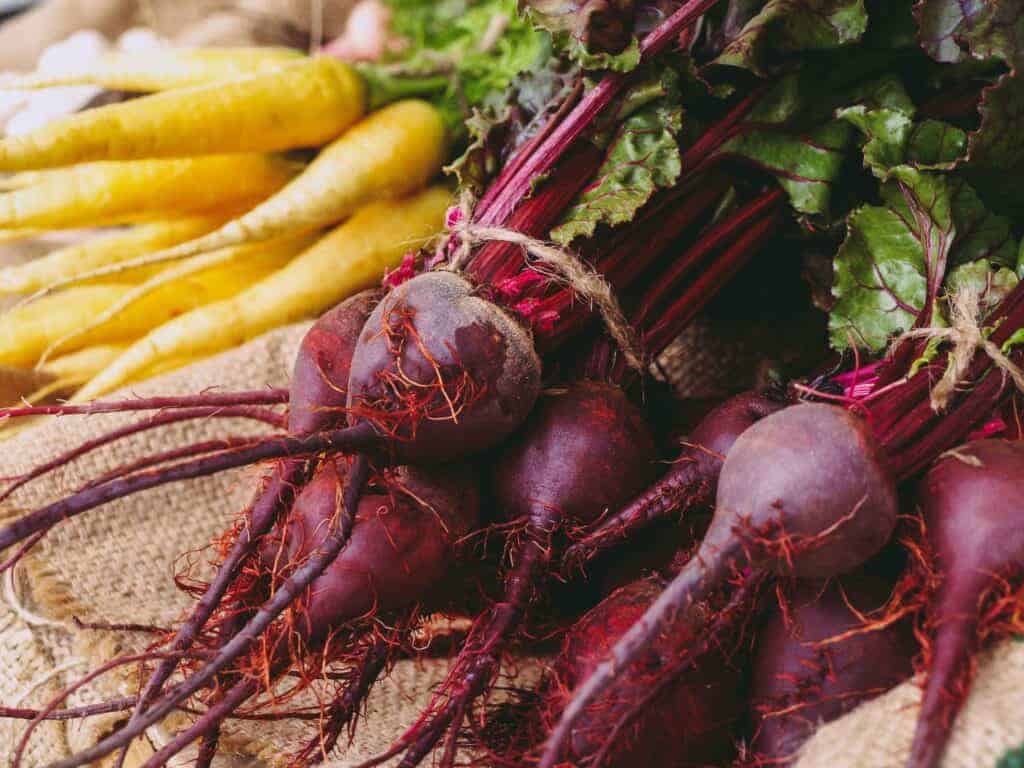
Zucchini and Summer Squash
Summer squashes, such as zucchini and yellow squash, are softer than their winter counterparts. Once you’ve cleaned them, place them in a plastic bag with one end open in the crisper drawer.
Ideally, you’d eat them within 5 days. Zucchinis can be stored for a week or two, but they may begin to shrivel after that. Summer squashes also freeze well; simply slice, blanch, and freeze. They’ll last about three months.
Keep Your Zucchini Crisp and Fresh
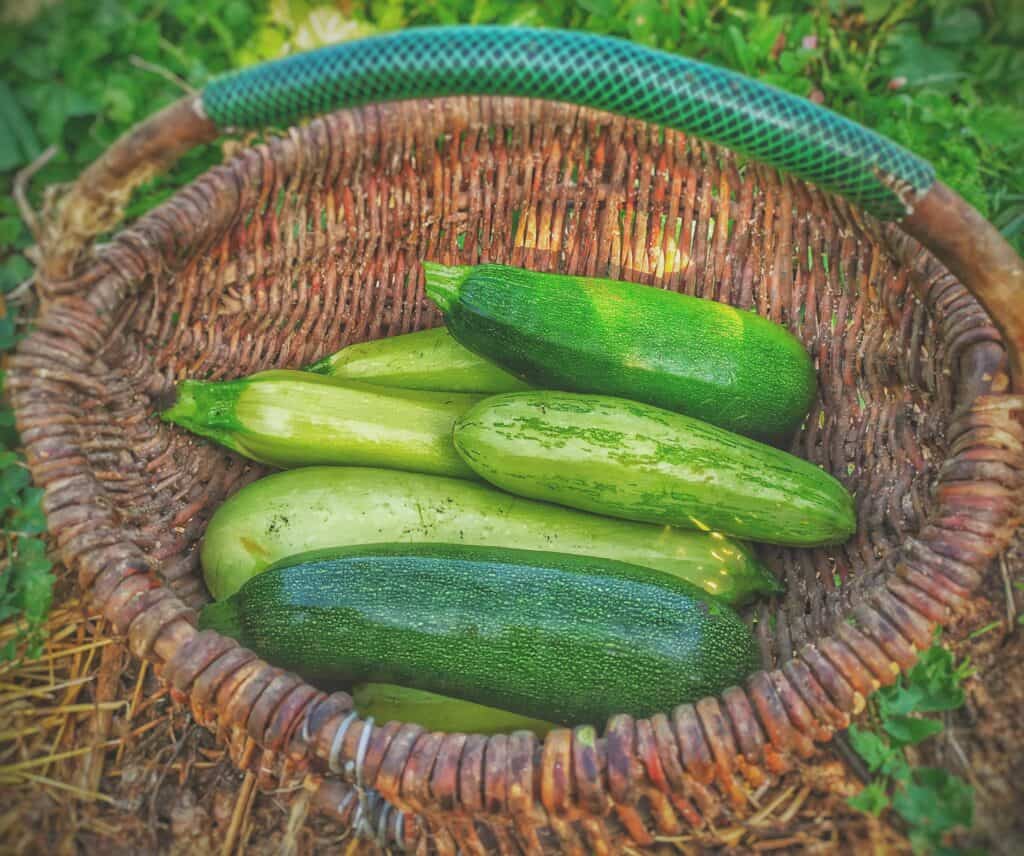
Cabbage and Brussels Sprouts
A whole head of cabbage, whether red, green, Napa, or Savoy, is a great vegetable to stock up on because it keeps for a long time. All you have to do is keep it in its plastic wrap or a resealable plastic bag in the fridge. Although the crisper drawer is ideal, cabbages can be large lads, so don’t be concerned if it doesn’t fit. It will keep for two to three weeks.
Brussels sprouts, those cute tiny cabbages can also be stored in the fridge. You can keep them in the fridge in a plastic bag. They’ll last at least a week and possibly up to two weeks.
Look at These Baby Gems
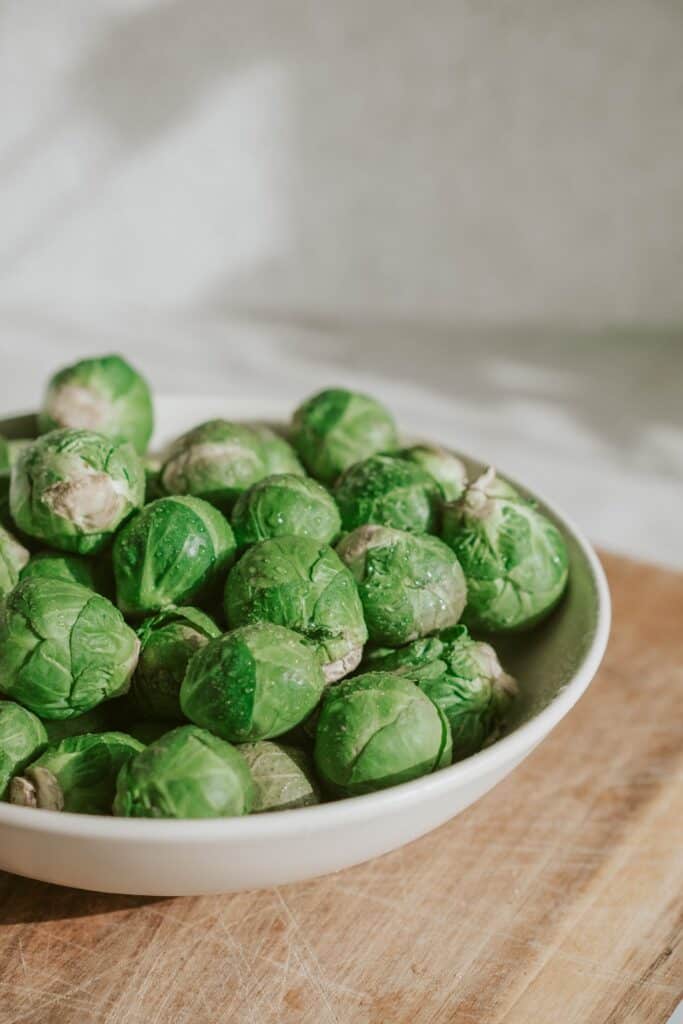
Cauliflower and Broccoli
Both of these vegetables are from the crucifer family and require similar storage methods. Whole heads of florets keep much longer than bags of pre-cut florets.
The best way to store broccoli or cauliflower is to store the stalks loosely in a plastic bag and to avoid washing them until you need them. They will keep for a week or more, but They’re best eaten right away.
Fresh Florets!
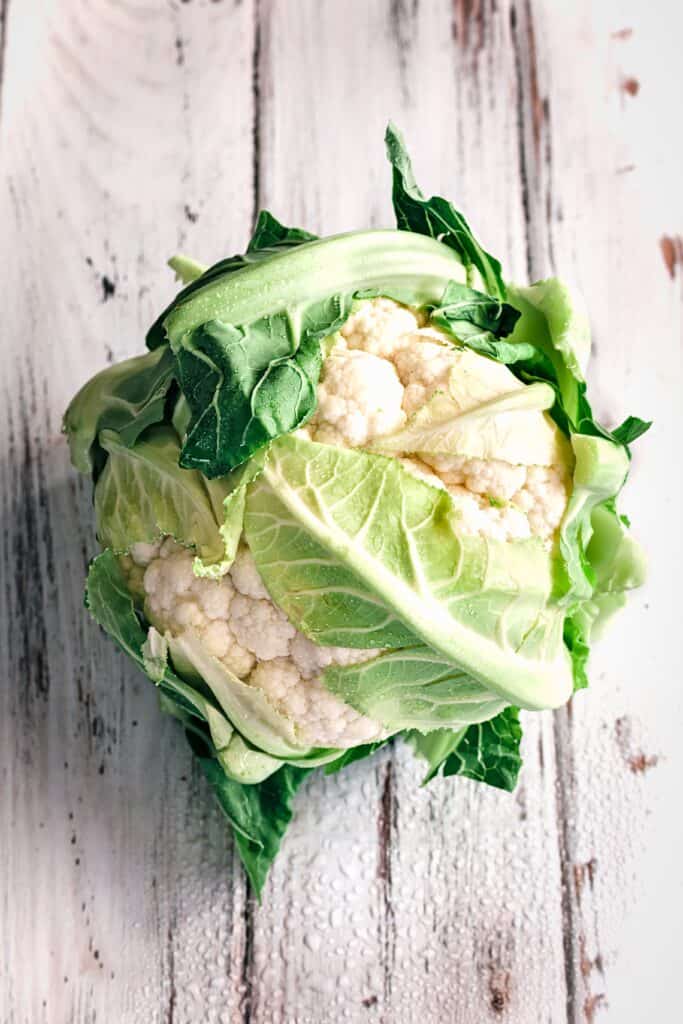
Mushrooms
The first tip you need to know is that mushrooms should not be washed. They should also be stored in the refrigerator rather than at room temperature.
If you bought a plastic-wrapped container at the supermarket, they’ll be fine in the package they came in. If they’re loose, brush off as much dirt as you can.
Place them in a paper bag and place them in the refrigerator. Mushrooms do not freeze well, so use them within a week of purchase if possible.
Never Wash Your Mushrooms
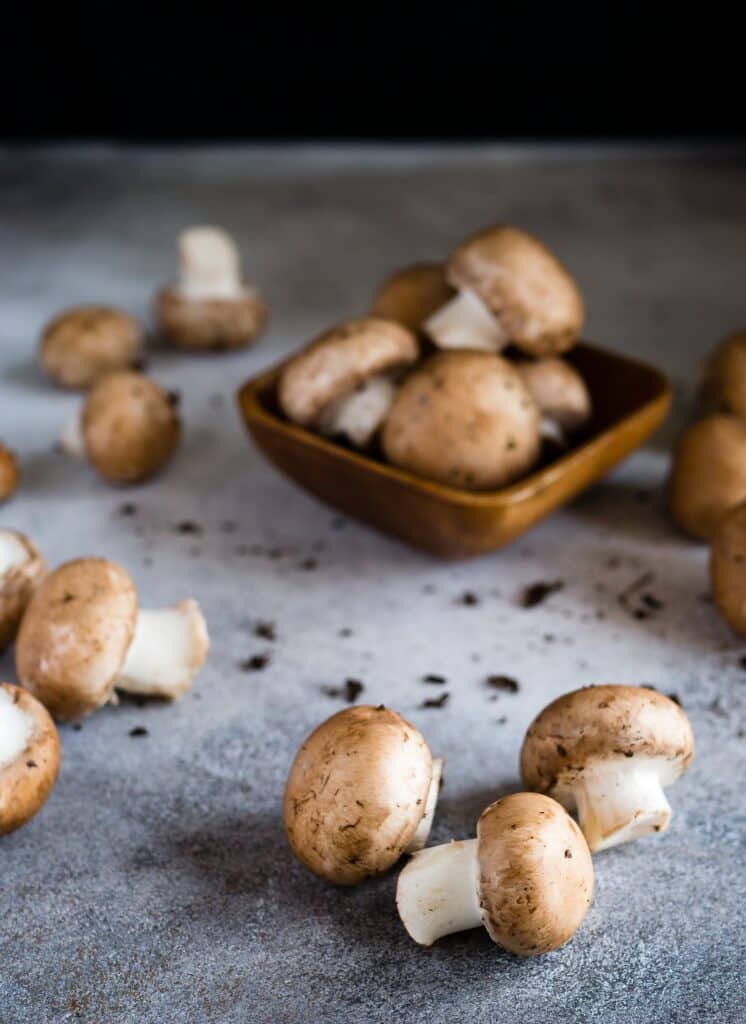
Onions, Shallots, & Scallions
Whole onions, including white onions, yellow onions, sweet onions, red onions, and shallots, are in the root vegetable zone and can be stored in a cool, dark place in a breathable bag or other container for up to a month outside the refrigerator.
Onions
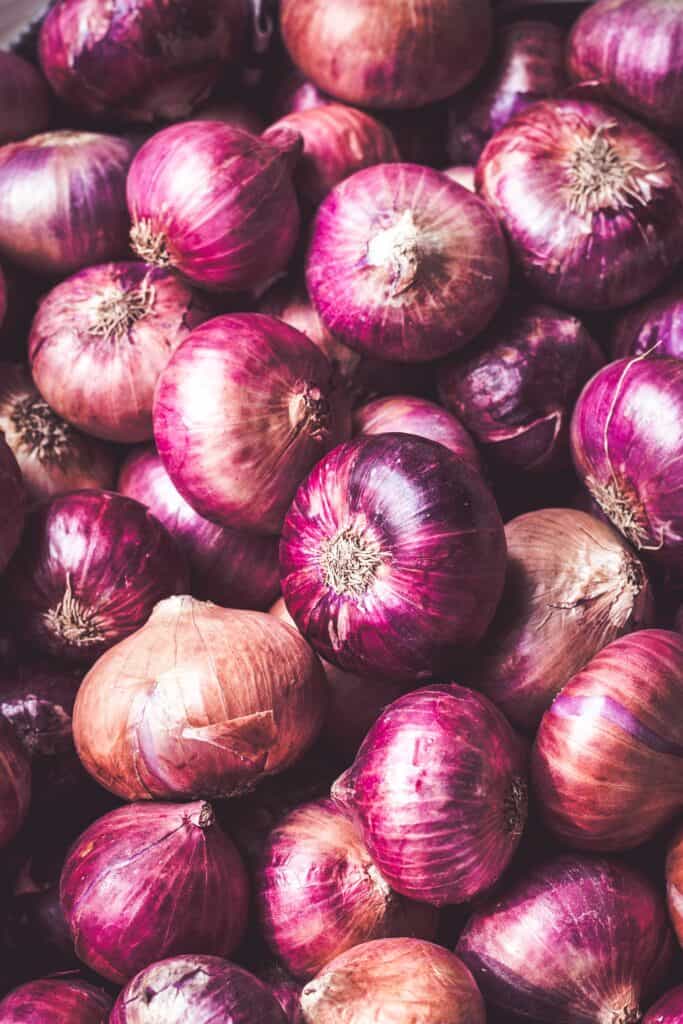
Tomatoes
Ripe tomatoes should still be kept on your counter, uncovered, if you plan to eat them within the next day or two. However, if you have it for any longer than that, it is best to refrigerate it. Refrigeration will help to slow the decay.
Fresh Red Tomatoes
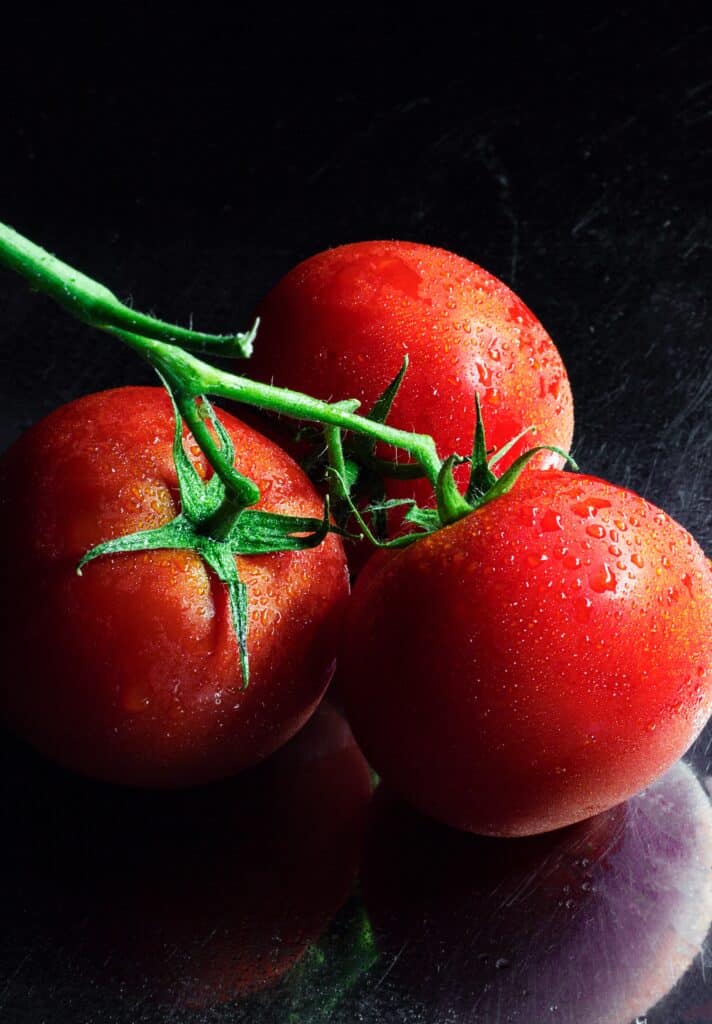
Garlic
Garlic bulbs can be stored properly for up to six months. If possible, buy it whole rather than peeled or minced. Then, to prevent sprouting, store it in a dark, dry place.
Garlic Storage Hacks
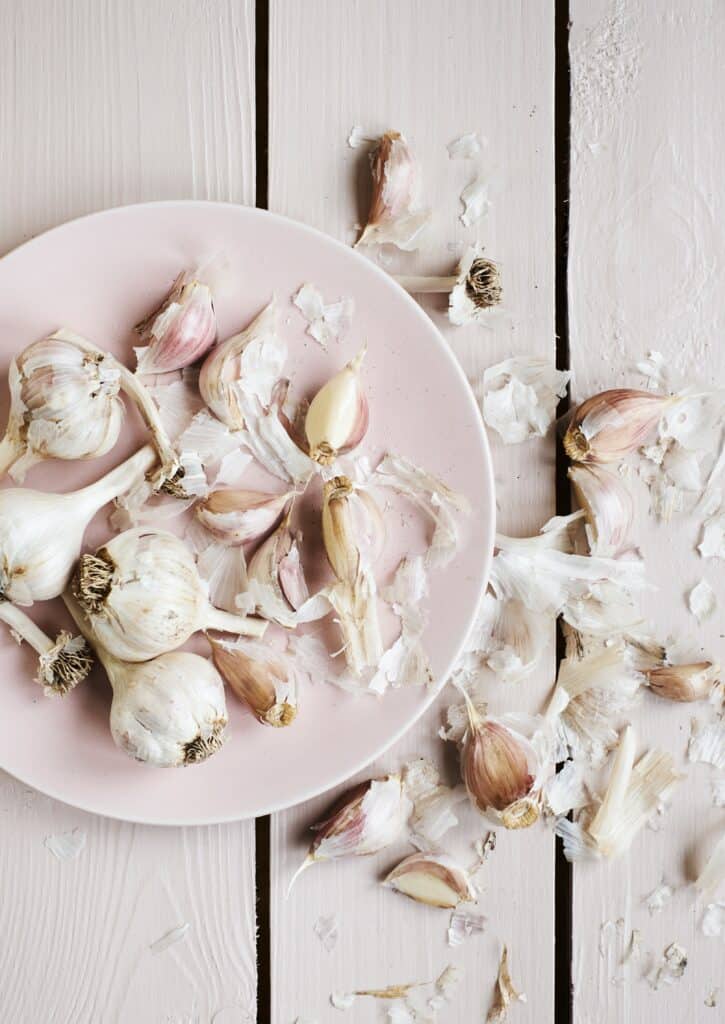
Frequently Asked Questions (FAQs)
The best vegetables to freeze fresh are corn, peas, broccoli, cauliflower, carrots, green beans, squash and winter greens such as spinach, kale, chard and collards. You can also freeze onions, peppers, celery and herbs.
It’s better to store veggies in the crisper drawer of your refrigerator. This section includes the drawer or drawers found at the bottom of the majority of refrigerators. Crispers typically have their own humidity controls. If possible, store vegetables at the optimal temperature and humidity.
You can store veggies like carrots, potatoes, broccoli, cabbage and celery in Ziploc bags in the crisper of your fridge.
Top Tips
- If using within a few days, wash and dry leafy greens in a salad spinner before wrapping in a paper towel and storing in a breathable bag in the fridge. Place a folded paper towel in with the greens to absorb excess moisture to keep them fresher for longer.
- Don’t store veggies and fruits in airtight bags because this actually speeds up decay.
- Discard or compost any spoiled produce because it can quickly spoil the entire group.
- Store root vegetables (including all types of potatoes) in a cool, dark, and dry place.
- Avoid storing fruits and vegetables together since fruits give off high levels of ethylene (the ripening agent) that can ripen and spoil surrounding vegetables.
Other Blogs You Might Find Useful
- How to Store Spinach For One Month?
- Perfect Way to Cut Chicken Wings
- Instant Pot Vs. Rice Cooker?
- The Best Sushi Hack: Easy No-Roll Sushi Cubes!
- Quick Skin-Peel Roasted Eggplant Hack
- The Best Way to Store Lettuce
- How to Cook or Roast Chestnuts
- Perfectly Boiled and Seasoned Broccoli
- Crispy Crunchy Air Fryer Cauliflower
- Best Boiled Artichoke With Honey Mustard Dip

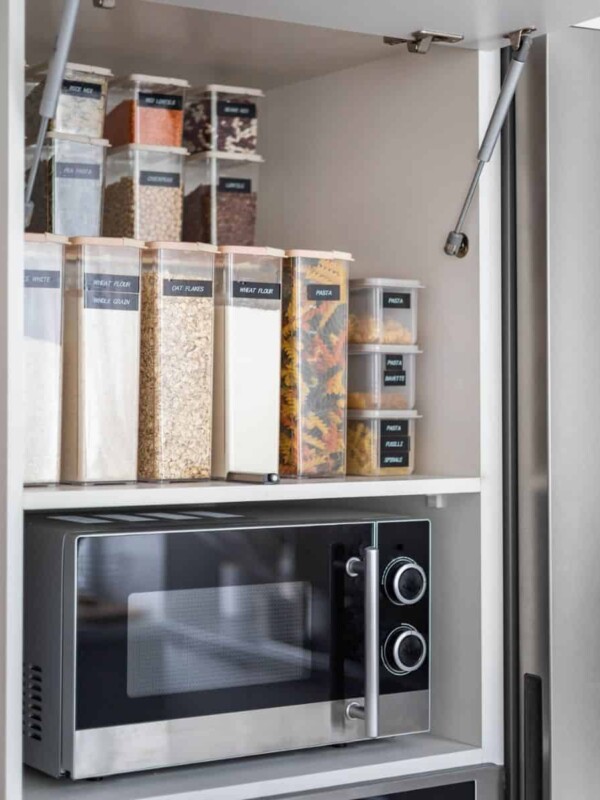
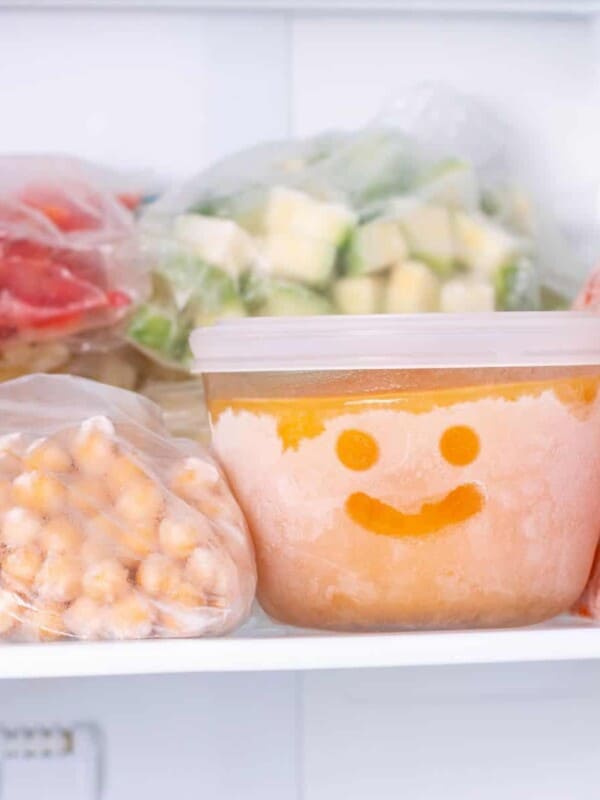
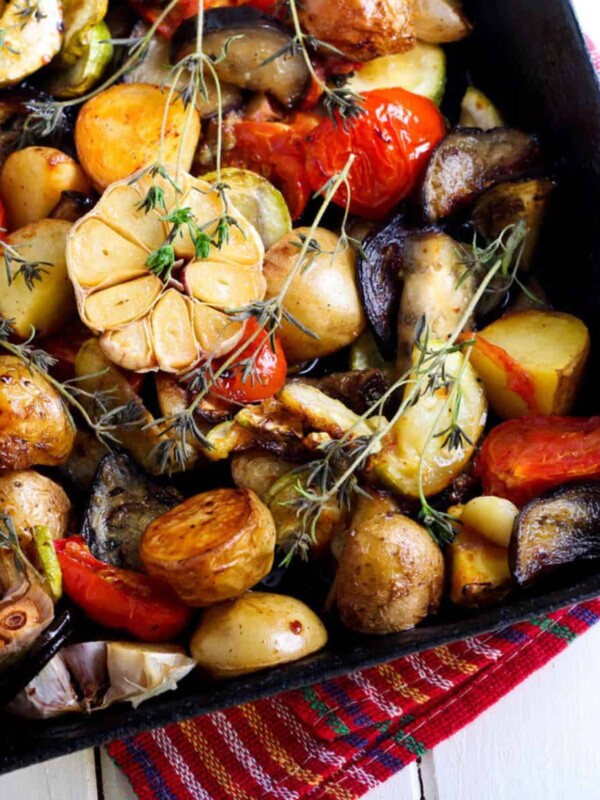
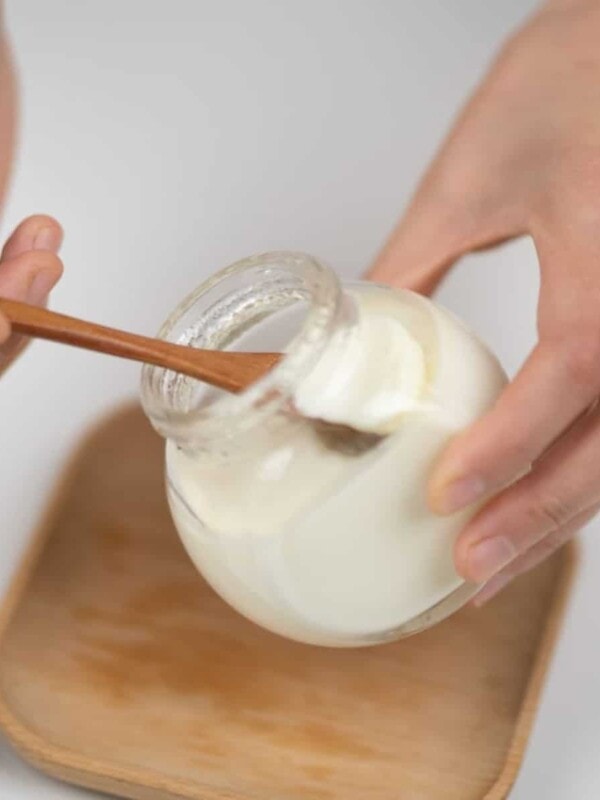
Thanks for the storing hacks. Really beneficial. I usually throw many vegetables because I don’t store them properly.